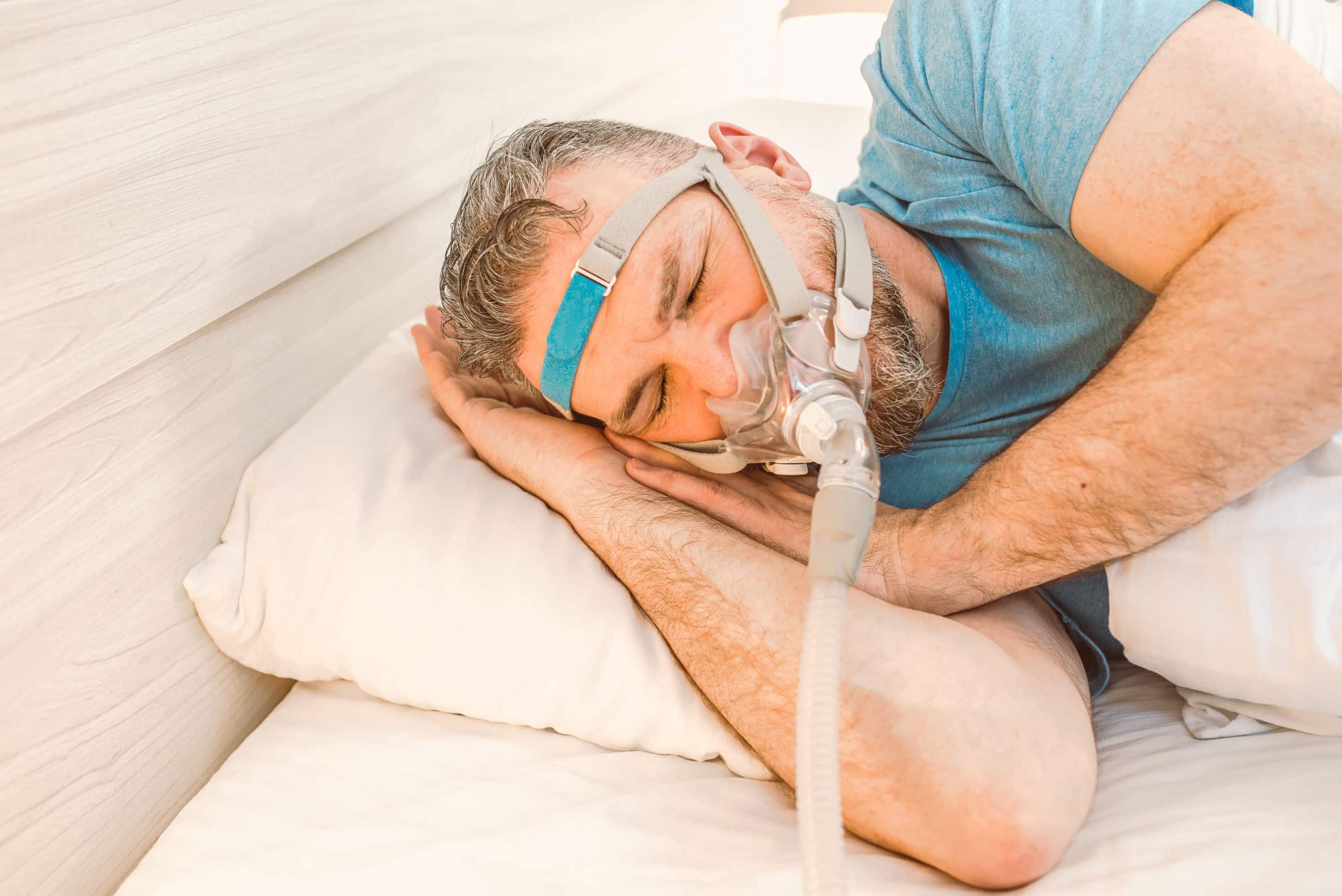What Causes the Different Kinds of Sleep Apnea?

What is Sleep Apnea?
Sleep apnea is a common disorder where breathing continually stops or slows dramatically during sleep. This condition results in less oxygen concentration in the blood and can temporarily awaken sleepers at night. There are two essential types of sleep apnea; central sleep apnea and obstructive sleep apnea.
Central Sleep Apnea
Central sleep apnea (CSA) occurs not due to a mechanical issue but due to your brain not signaling your muscles appropriately. This makes you stop breathing temporarily or breathe so lightly that you don’t receive sufficient oxygen. Eventually, other parts of the brain signal that you’re running out of oxygen, and your central nervous system kicks in, causing you to inhale sharply and suddenly, which can be noisy (waking yourself or your sleep partner), painful, or stress-inducing, whether you wake up or not.
Central Sleep Apnea Causes
In many cases, doctors cannot determine the root cause of central sleep apnea. However, some CSA is related to your environment, medication, or another illness. Potential causes of central sleep apnea include:
- Kidney failure, heart failure, or stroke can cause CSA with a distinct Cheyne-Stokes breathing design. This is referred to as CSB-CSA.
- Kidney problems, heart conditions, and other medical conditions can also bring about non-CSB CSA.
- High-altitude central sleep apnea usually occurs during sleep at a higher altitude (above 15,000 feet). The condition goes away at lower altitudes.
- Some drugs and medications, more so opiates like fentanyl or hydrocodone, can trigger CSA. Your doctor can help adjust your medication. Meet with a therapist or doctor if you are misusing opiates.
CSA in children is also usually unclear (idiopathic). Yet, several things can impact brain signals that usually help the child breathe during sleep. Other causes of CSA include:
- Cerebral palsy
- Brain tumors
- Smoking while pregnant
- Premature birth
- Head injury
- Problems with the brain stem
Obstructive Sleep Apnea
Obstructive sleep apnea (OSA) occurs when your breathing mechanics have a problem. This can be due to a misalignment of your jaw, leading to a more narrow-than-normal opening at the back of your throat, tissue growth or inflammation in your neck, or heavy snoring that limits the rate of air intake to your lungs.
Obstructive Sleep Apnea Causes
For adults, the most prevalent cause of obstructive sleep apnea is obesity and excess weight, which is linked to excess mouth and throat soft tissues. While asleep, the tongue and throat muscles are more relaxed, and the soft tissue leads to blockage of the airway.
Over 50% of the people with OSA are either obese or overweight. You are at a six times higher risk of OSA if your weight increases by 10%, but this effect drops after the age of 60.
Other probable risk factors or causes for OSA include:
- Having a narrow throat
- Allergies
- Hypothyroidism
- Deviated septum
- Excess growth because of hormone fluctuations
- Smoking
- Drug or alcohol abuse
- Medical conditions that obstruct upper airways
Children with conditions like a large overbite, adenoids, or enlarged tonsils can also have obstructive sleep apnea. Other less common causes include growth or tumor in the airway and birth flaws such as Pierre-Robin syndrome and Down syndrome. Down syndrome results in enlarged tonsils, adenoids, and tongue. Those with Pierre-Robin syndrome possess a small lower jaw where the tongue balls up and falls behind the throat.
Irrespective of age, untreated OSA can result in complications, such as premature death, accidents, and cardiovascular disease.
Relief From Sleep Apnea in Denver, CO
If you think that you experience any form of sleep apnea, you can schedule a consultation through our online contact form at Associates of Otolaryngology today. We have convenient locations in Lone Tree, Castle Rock, and Denver, CO. Our ENT specialists are ready and willing to help you get the restful, uninterrupted sleep you deserve.




